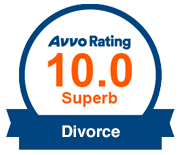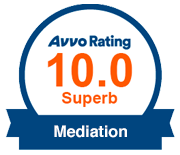Parent Coordination: Helping You Co-Parent for the Benefit of Your Children

While some families are able to transition from an “intact” family to a family with two homes (either post-divorce or separation) seamlessly, the reality is most families cannot. No co-parenting relationship is exactly 50/50 even when parents are together. Sometimes, one parent stays home and takes a larger role in the day-to-day management of the children’s appointments and activities. Sometimes, both parents work but one is primarily in charge of scheduling camps and daycare while the other is in charge of the actual transportation. Holidays are spent together. It works because everyone is together, and a division of those duties happens by mostly by default.
But what happens when parents separate, or parents get divorced? Typically, there is a loss of some (or all) trust between the parties because of the separation/divorce. Additionally, two households means new routines, splitting time and holidays, and new divisions of responsibilities/decision making. Developing protocols on how to make decisions, how to manage transitions, approaching behavioral and educational issues, or even who is going to take the children to which doctor’s appointments is hard. Decisions can seem impossible, leading to increased tension and conflict for the children, and likely more litigation.
Luckily, in Maryland you can utilize the Parent Coordination process to help you work through the conflict to build a better co-parent relationship moving forward which reduces conflict for the children.
Who are Parent Coordinators?
Parent Coordinators are highly trained professionals (in most cases attorneys or therapists/social workers) whose sole objective is to help co-parents reduce conflict for the benefit of their children. They do so by assisting parents in learning to communicate effectively with each other post-separation/divorce. Parent Coordination can be particularly helpful in high-conflict situations where co-parents struggle to communicate effectively or reach agreements independently. A Parent Coordinator acts as a neutral third party, facilitating discussions, offering guidance, and ultimately helping parents find common ground on various issues concerning their children. The goal of Parent Coordination is that the parents learn to effectively communicate and make decisions on their own, reducing conflict and creating a better environment for their children.
What can a Parent Coordinator do?
A parent coordinator can assist with many different things relating to resolving conflict for the children, and much of their role will be defined by the Court Order or Parent Coordination agreement. A few of the things a Parent Coordinator can do are:
- Mediating conflicts: Parent coordinators facilitate discussions between co-parents, helping them address disagreements regarding custody arrangements, visitation schedules, schooling, healthcare, and other important decisions affecting their children.
- Developing parenting plans: Parent coordinators can assist parents in crafting comprehensive parenting plans tailored to their children’s needs and the family’s circumstances. These plans establish guidelines for custody, visitation, communication protocols, and dispute resolution mechanisms.
- Implementing court orders: Parent coordinators help ensure compliance with court orders and custody agreements – and in many cases can resolve potential issues in advance, reducing the likelihood of disputes arising from misunderstandings or non-compliance.
- Offering education and resources: Parent coordinators may provide educational resources, referrals to counseling services, and guidance on effective co-parenting strategies to help parents navigate challenges and improve communication skills.
- Make certain decisions: In certain circumstances, depending on your agreement or court order, Parent Coordinators can make small decisions where the parties are unable to reach an agreement. Parent Coordinators cannot change legal or physical custody schedules ordered by the Court, but may be able to do things such as set a pickup/drop-off location if the parties are unable to agree.
What are the benefits of a Parent Coordinator?
Some of the benefits of a Parent Coordinator include:
- Reduced conflict: By providing a structured framework for communication and conflict resolution, parent coordination helps minimize conflicts between co-parents, creating a more stable and peaceful environment for children.
- Faster resolution of disputes: Parent coordinators can help parents address conflicts more efficiently, reducing the need for costly and time-consuming court interventions.
- Child-focused decision-making: Parent coordinators prioritize the best interests of the children, helping parents make decisions that promote their children’s well-being and development.
- Improved communication: Through guided discussions and communication strategies, parent coordination fosters healthier communication patterns between co-parents, enhancing their ability to collaborate effectively in co-parenting responsibilities.
- Enhanced compliance with court orders: Parent coordinators help ensure that custody arrangements and parenting plans are followed, reducing the likelihood of disputes over non-compliance.
How do you get a Parent Coordinator?
Parent Coordinators are either agreed to by the parties or appointed by the Court (if you are in litigation). A Court can appoint a Parent Coordinator to work with the parties during the pendency of their litigation as a tool to help during the transition. A Parent Coordinator can only be appointed post-judgment (after litigation ends) if the parties agree. If you are working with a family law attorney, chances are they know Parent Coordinators and can suggest some to you. I always recommend Parent Coordination to my clients who are unable to have healthy co-parenting relationships/make decisions.
How do Parent Coordination sessions work?
Every Parent Coordinator will run their practice differently and many times it varies based on what works best for that family. Sometimes a court will determine a certain number of sessions need to happen. Other times, the parties can agree on when sessions will happen. If the Parent Coordination Agreement or Court Order allows, the Parent Coordinator can determine the frequency of sessions. In almost all cases, after the initial meetings, every meeting will have an agenda of items from both parents and the Parent Coordinator will work through those agenda items with the parents, listening to their concerns and positions, and trying to find compromise that is in the best interest of the children. A Parent Coordinator will help the parents develop a communication protocol, which will ultimately help them make effective and timely decisions in the best interest of their children. Most Parent Coordinators are holding sessions by Zoom so that there is no travel involved for the parents.
Who pays for the Parent Coordinator?
If the Court appoints a Parent Coordinator, then the parties will pay pursuant to the Court Order. If the parties agree to a Parent Coordinator, the fees can be divided as agreed to. While a Parent Coordinator is an additional expense (which can be burdensome particularly for those who are going through litigation), many families utilizing Parent Coordination find they ultimately end up saving money because Parent Coordinators can assist in resolving issues in an efficient manner, alleviating some (or all) of the issues pending before the court.
Is there anything else I need to consider with using a Parent Coordinator?
Yes! Importantly, Parent Coordination is not a confidential process. If you are in litigation, a Parent Coordinator can come and testify about what happened in Parent Coordination meetings and their notes/memorandums/emails with the parties can be subpoenaed. While this may seem scary, many parents find it reassuring that a neutral party is allowed to testify about the communications and disagreements by the parties. In most cases, it makes everyone put their best effort into Parent Coordination because there is accountability. Parent Coordinators are fact witnesses, not expert witnesses, so they are not allowed to give their opinions about what happened during the Parent Coordination Process.
Parent Coordination offers a structured approach to resolving conflicts and making decisions. Parent Coordinators help families navigate the challenges of co-parenting with greater ease and efficiency. In many cases, working with a Parent Coordinator creates long-term positive effects in co-parenting, which reduces the need for litigation and future litigation.
If Parent Coordination is something you believe would be helpful for you and your co-parent, you should reach out to your attorney (if you have one) to ask for more information or names of Parent Coordinators they recommend. If you are not in litigation or do not have an attorney, you can find Parent Coordinators information online and work with them directly (so long as your co-parent agrees).









